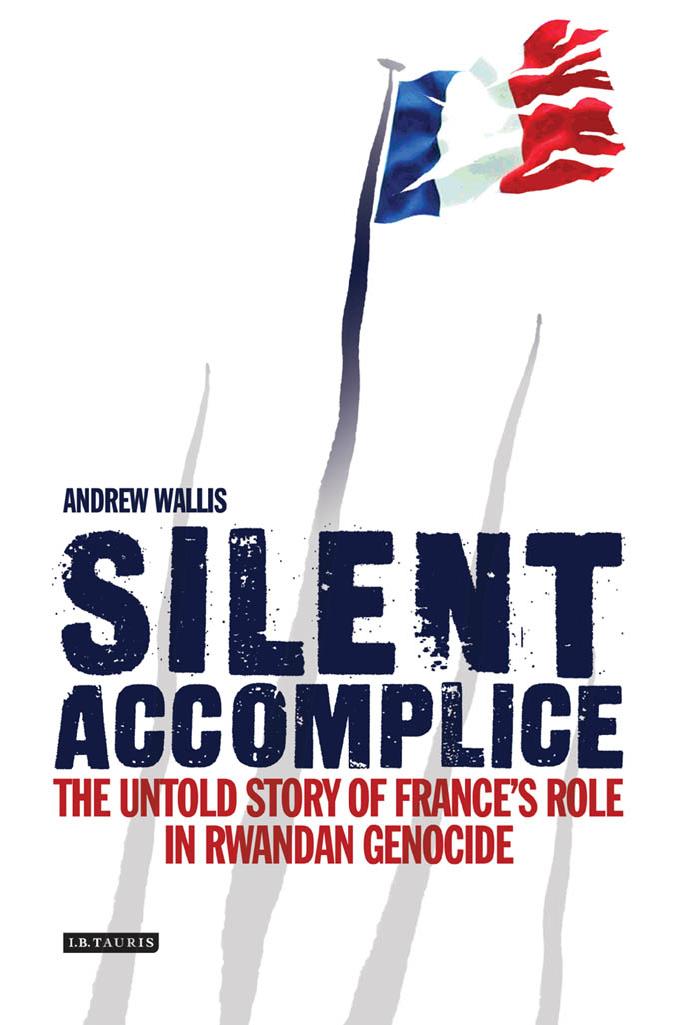Silent Accomplice: The Untold Story of France's Role in the Rwandan Genocide by Andrew Wallis

Author:Andrew Wallis [Wallis, Andrew]
Language: eng
Format: epub, pdf
Tags: History, Africa, East, Political Science, Colonialism & Post-Colonialism, Central, General, Genocide & War Crimes, Europe, Modern, 20th Century
ISBN: 9780857735348
Google: S6SmDwAAQBAJ
Publisher: Bloomsbury
Published: 2014-03-26T21:07:50+00:00
It was an astonishing piece of spin by Juppé. African analyst Gérard Prunier was unimpressed: âhaving spent the last 40 days silently watching its former pupils and protégés commit a massive genocide, the government discovered it had a conscience just as media pressure became irresistible and when South Africa threatened to intervene militarily.â4
Each part of the French government and military establishment had its own reasons to back the intervention. Mitterrand had already conceded privately by mid-June that the interim government was âa bunch of killersâ.5 Turquoise gave him a chance to play the âhumanitarianâ card so beloved by the media and show a sceptical French public and international audience that France âcaredâ. Moreover, it proved that France could still mount an impressive military expedition at short notice, which would bolster its flagging reputation with other worried francophone dictators who feared their own civil unrest.
Across the political divide, Mitterrandâs Gaullist opponents were pragmatic in their assessment of the intervention. Juppé and his ally Chirac were aware of the immense media bonanza such an ethically caring intervention could bring them. Balladur, the prime minister, and his defence minister François Léotard were less enthusiastic, recognizing the high stakes involved. If Turquoise went wrong the headlines would be unbearable and his job would be on the line. His reasons for reluctantly backing a scaled-down limited intervention were, according to a letter sent to Mitterrand on 21 June, because the situation happened in Africa, happened in a francophone country and because of the moral aspect.6 All three reasons had been true since the genocide began two months earlier.
Balladur also pushed for the operation to meet various conditions, the first being to gain a UN Security Council mandate for it. He argued that any attempt at a unilateral intervention, like the earlier Operation Noroit, would be catastrophic for France. Equally, the operation needed to be limited in time to âa few weeksâ until UNAMIR II, which had been authorized way back on 17 May, finally entered the country. As it stood, the UN operation was still months away from deployment in terms of preparation of troops, equipment and finance.
Generals Huchon and Quesnot, like other military âhawksâ, had always been keen to intervene, arguing that France should never have left Rwanda but used its troops, as in 1993, to keep the RPF at bay. To the more gungho French military, Turquoise could enable the Rwandan army to re-form and counter the RPF advance. Gérard Prunier, the African expert, who surprisingly given his âliberalâ credentials had been drafted in to help plan the intervention, ran into such officers who were âgrumbling in aisles about âbreaking the back of the RPFââ.7
A mere nine months earlier the French military command had been involved in stopping the RPF dead in its tracks. It was unsurprising then that âmany soldiers interpreted their Turquoise brief to imply a rearguard action in support of their beleaguered Rwandan allies, to allow them to retreat in good order and regroup.â8 A US military officer, who spoke
Download
Silent Accomplice: The Untold Story of France's Role in the Rwandan Genocide by Andrew Wallis.pdf
This site does not store any files on its server. We only index and link to content provided by other sites. Please contact the content providers to delete copyright contents if any and email us, we'll remove relevant links or contents immediately.
Goodbye Paradise(3810)
Men at Arms by Terry Pratchett(2838)
Tobruk by Peter Fitzsimons(2518)
Borders by unknow(2315)
Arabs by Eugene Rogan(2299)
Pirate Alley by Terry McKnight(2221)
More Than Words (Sweet Lady Kisses) by Helen West(1867)
Belonging by Unknown(1857)
It's Our Turn to Eat by Michela Wrong(1731)
The Biafra Story by Frederick Forsyth(1656)
The Source by James A. Michener(1613)
Botswana--Culture Smart! by Michael Main(1602)
Coffee: From Bean to Barista by Robert W. Thurston(1545)
A Winter in Arabia by Freya Stark(1538)
Gandhi by Ramachandra Guha(1532)
The Falls by Unknown(1527)
Livingstone by Tim Jeal(1489)
The Shield and The Sword by Ernle Bradford(1409)
Africa: Altered States, Ordinary Miracles by Richard Dowden(1385)
